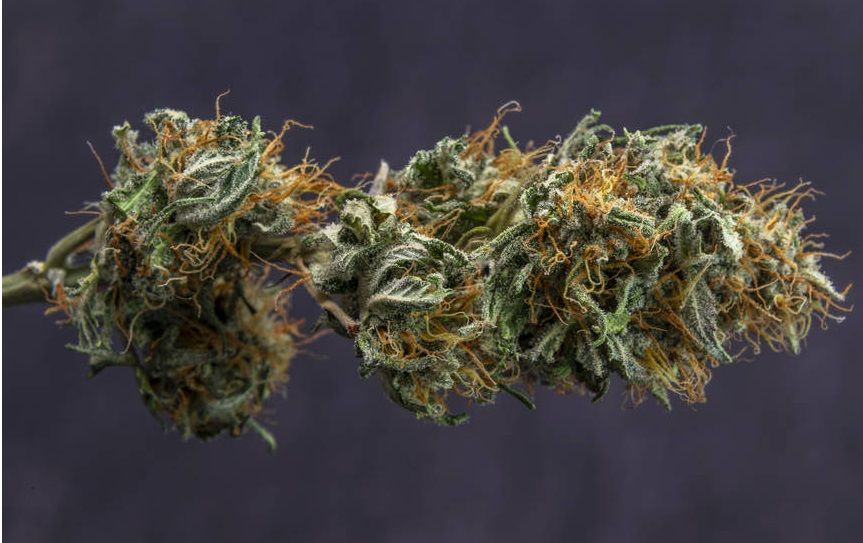There are numerous marijuana-related bills currently active in the US House and Senate, but only a few have even a remote possibility of being approved through either chamber this year.

To date there has only been one piece of standalone marijuana-related legislation ever passed through Congress and sent to the president; the Medical Marijuana and Cannabidiol Research Expansion Act, signed into law by President Biden in December, 2022.
Since then, proponents of marijuana law reform have put forth multiple proposals seeking to bring further reforms, with many being far more consequential than the above-mentioned act.
That said, here are the three federal bills with the best chance of actually being passed through the House, Senate, or both.
-
The Safe and SAFER Banking Act
The SAFER Banking Act (S.2860) is sponsored by 35% of the entire US Senate, including having support from some Republicans and all three independent senators. In the House of Representatives, the SAFE Banking Act (filed months prior but with similar language) recently gained its 100th bipartisan sponsor.
Both measures would allow banks and other financial institutions to provide banking services to marijuana businesses that are following their state’s law., including debit and credit card processing and access to business loans.
The Senate version of the bill has already received approval through the Senate Committee on Banking, Housing and Urban Affairs with bipartisan support, and it’s supported by Senate Majority Leader Chuck Schumer.
Given the measure does have considerable bipartisan support, it’s one of the most likely bills to be passed by Congress prior to any potential change in leadership after the November election.
-
The STATES Act
The STATES Act was filed in December by a bipartisan coalition of five congressmembers. The proposal has since garnered three additional sponsors.
If passed into law the STATES Act would amend the Federal Controlled Substances Act to state that those acting in compliance with state drug laws laws would no longer be committing a federal crime. This includes both marijuana consumers and those operating state-legal marijuana businesses.
The measure would also explicitly allow marijuana commerce between legal marijuana states and tribes, and it would amend an IRS regulation (section 280E) that prohibits businesses from taking tax deductions if they run a federally illegal business, even if the business is properly following their state’s laws.
The STATES Act has a much harder path to passage than the SAFE/R Banking Acts, but its bipartisan support helps its case, and there are many Republicans who may personally oppose legalizing marijuana, but have indicated support for allowing states to decide their own laws on the issue without federal interference.
-
The Veterans Equal Access Act
The Veterans Equal Access Act has 29 sponsors in the House of Representatives.
The proposal would require the Department of Veterans Affairs (VA) to authorize providers to discuss medical marijuana with veterans and complete forms reflecting their best recommendations.
Under current law, physicians at the VA are prohibited from discussing marijuana with their patients, and veterans who receive care from VA facilities cannot receive the forms required to participate in medical marijuana programs – regardless of whether the state they reside in has legalized it for medical use. H.R. 2431 would change this by providing federal protection to VA doctors who discuss and recommend medical cannabis.
In November, by a vote of 82 to 15, the full United States Senate gave approval to the Military Construction, Veterans Affairs, and Related Agencies spending bill, which included a provision put forth by Senator Jeff Merkley (D) that would allow doctors at the Department of Veterans Affairs to legally recommend marijuana to their patients, something that’s currently prohibited.
In July, the House of Representatives passed a similar, but slightly different, version of the same provision. The two chambers must now reconcile the two versions and vote again before it can be sent to President Biden for consideration.
Specifically, the Senate version of the provision states that “None of the funds appropriated or otherwise made available to the Department of Veterans Affairs in this Act may be used in a manner that would interfere with the ability of a veteran to participate in a medicinal marijuana program approved by a State”, or “deny any services from the Department to a veteran who is participating in such a program”, or “limit or interfere with the ability of a health care provider of the Department to make appropriate recommendations, fill out forms, or take steps to comply with such a program.”
Whether through the passage of the Veterans Equal Access Act, or as a rider to a larger spending bill, Congress seems poised to finally pass legislation addressing veterans medical cannabis use.
For a look at the five states most likely to legalize marijuana in 2024, click here.







